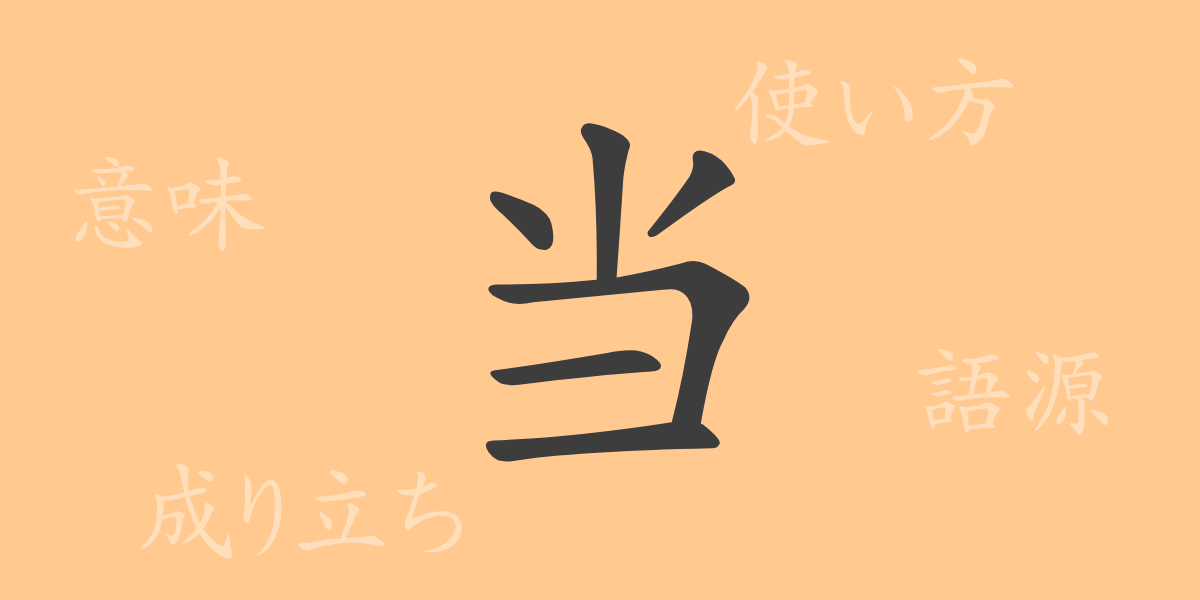Japanese characters, especially the commonly used Kanji, enable rich expressions and are frequently used in daily life. Among these, ‘当(とう)’ is a versatile character appearing in various contexts. This article focuses on the Kanji ‘当’, exploring its origins, meanings, usages, pronunciations, and stroke count, and delves into commonly used phrases and idioms that incorporate it. Join us in exploring the profound world embodied in this single character.
Origins of ‘当(とう)’
The Kanji ‘当’ originated from oracle bone script in ancient China. Initially signifying the act of hitting the target directly, it evolved to mean being in the correct position. It is a phono-semantic compound, combining the sound ‘尚(しょう)’ with the semantic ‘田(た)’, and over time ‘尚’ was dropped, leading to the modern form ‘当’ which is widespread today. The meanings and usages of ‘当’ have expanded over time to encompass a wide array of expressions.
Meaning and Usage of ‘当(とう)’
‘当’ primarily means ‘appropriate’, ‘correct’, or ‘the very thing’. It appears in verbs like ‘当たる(あたる)’ and ‘当てる(あてる)’, and in nouns such as ‘当日(とうじつ)’ and ‘当人(とうにん)’, pointing to specific times, places, or people. It is also used in terms like ‘当選(とうせん)’ and ‘当番(とうばん)’ to denote specific situations or roles.
Pronunciation, Stroke Count, and Radical of ‘当(とう)’
‘当’ is a Kanji character with several readings, each corresponding to different uses:
- Readings: On’yomi ‘トウ’, Kun’yomi ‘あたる’, ‘あたり’, ‘まさに’
- Stroke count: 6
- Radical: ‘田’
Phrases, Idioms, and Proverbs Using ‘当(とう)’
The Kanji ‘当’ is part of numerous idioms and proverbs, reflecting the versatility of expressions in Japanese:
- 当然(とうぜん) – Naturally expected; justified as being obvious.
- 当番(とうばん) – Taking turns in duty.
- 当事者(とうじしゃ) – Person directly involved.
- 当選(とうせん) – To win an election or lottery.
- 当座(とうざ) – For the time being; temporarily.
- 当て字(あてじ) – Kanji used phonetically to match the sound or meaning.
- 当たり前(あたりまえ) – Something naturally expected or obvious.
- 当てにする(あてにする) – To rely on, to count on.
These phrases and idioms are frequently used in both casual and business communications.
Conclusion on ‘当(とう)’
The Kanji ‘当’ has undergone many transformations from its inception to modern usage. While seemingly simple, its applications are extensive, enriching Japanese expressions. A deeper understanding of ‘当’ enhances word choice and enriches communication. We hope this exploration has served as a reacquaintance with the beauty and depth of the Japanese language.

























